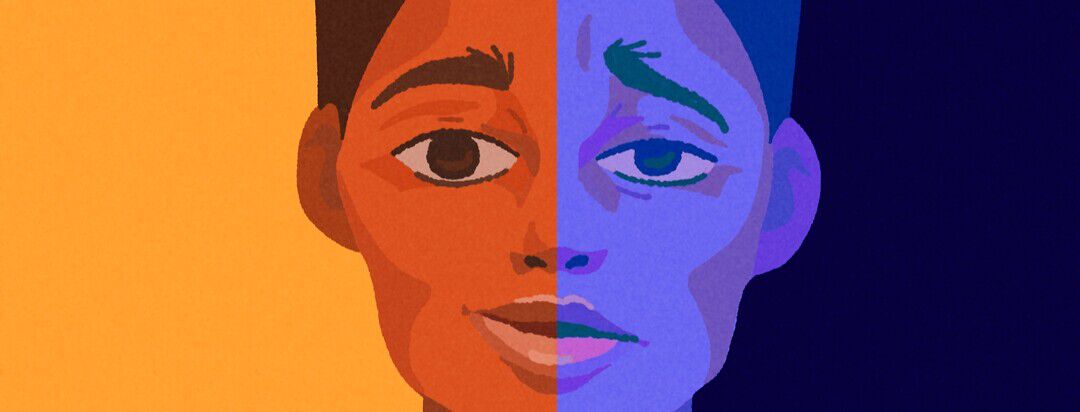
After diagnosis, silence feels heavier. Even when rooms are full, it doesn’t feel like comfort. The weight of unspoken thoughts fills the air. Time stretches. You try to process the words. But your body goes still. Emotions move faster than words.
You listen, but don’t fully hear. Familiar voices now feel distant. You nod, answer, smile—but you’re somewhere else. The moment stays suspended, without direction. The news keeps echoing.
Understanding doesn’t always arrive when information does.
Fear enters quietly and stays longer than expected
Fear doesn’t always begin with panic. It begins with questions that have no answers. What now? What if? These thoughts grow quietly. They follow you from room to room.
Even on calm days, fear sits nearby. Not every fear is loud. Some just alter how you see everything. Waiting for scans, test results, or a treatment plan—these moments stretch into anxiety.
You try to return to normal, but fear has already reshaped the background.
Emotions don’t arrive in order, and they don’t leave in order either
One day you feel steady. The next, you cry without warning. There’s no clear pattern. Emotions collide. You might laugh in a waiting room. Or go silent during good news.
There’s no proper emotional timeline. Anger might come after acceptance. Sadness may return after hope. Each moment brings a shift. You stop trying to name what you feel. You simply feel it.
Healing isn’t linear, and neither is how you experience it.
The word cancer changes how people look at you
Even before treatment starts, the word changes things. People speak softer. Their eyes linger longer. They ask questions, then hesitate to hear the answers.
You begin noticing how others react. Some disappear. Others overcompensate. You feel the weight of their discomfort. The diagnosis isn’t private anymore—it’s written on faces.
Even when your body hasn’t changed, your reflection in their eyes has.
Isolation can grow louder during moments meant to feel supportive
Support isn’t always comforting. Sometimes it feels overwhelming. Or hollow. People mean well. But their words fall short. You smile to protect them. You thank them for showing up, even when you feel most alone.
You want to speak honestly, but you also want to protect their hope. So you nod through encouragement. You carry their fears, too.
Solitude doesn’t need distance—it only needs misunderstanding.
The body becomes unfamiliar, even before treatment begins
You start noticing new aches. You question every sensation. Your body feels like a stranger. The diagnosis creates a divide. You once trusted your body. Now you question its signals.
Every mirror glance feels sharper. You touch your skin differently. Waiting for symptoms becomes a silent routine. Even sleep feels different.
You’re still inside the same body—but it no longer feels like home.
Loss takes many forms before anything is visibly gone
Hair, weight, routines—these changes come later. But loss starts earlier. You lose certainty. You lose casual plans. You stop making assumptions about next month.
Some friends become quiet. Some conversations feel shorter. You feel space growing around you. Before physical loss appears, emotional absence settles in.
The life you had doesn’t leave all at once. It drifts slowly, in pieces.
Hope returns in unexpected shapes, not always with good news
Sometimes hope comes through small things. A normal test. A walk without fatigue. A doctor who listens. It’s not always about remission or results. It’s about moments that feel steady.
You learn not to wait for one final answer. Instead, you find comfort in breath, in routine, in voice. Hope stops being a finish line. It becomes something portable.
You begin carrying it quietly, in spaces where fear once lived.
Control becomes a concept you redefine every day
At first, you try to control everything. Appointments, food, reactions. You think control means protection. But over time, you realize control means adapting.
You can’t decide what happens. But you decide how you respond. You learn to ask better questions. You accept not knowing. That shift feels strange, but necessary.
Control doesn’t disappear. It changes shape.
The journey continues even when others think it’s over
After treatment ends, people expect relief. Celebration. But you still feel the weight. Scans remain. Side effects linger. Fear returns with each routine checkup.
The world expects closure. But your body carries memories. You don’t feel finished. The calendar moved on, but you didn’t.
Recovery doesn’t mean returning—it means carrying forward with something new inside you.
